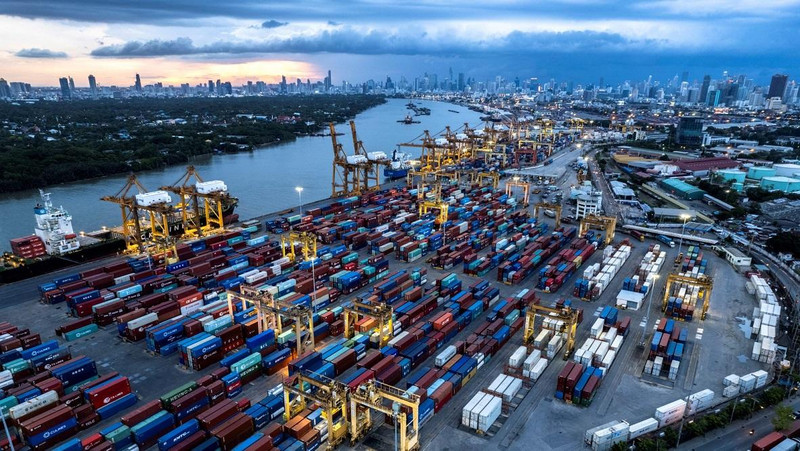Japan’s inflation hit 2.8% - the highest level since 2014. The consumer price index in the Land of the Rising Sun recorded the strongest increase in the past eight years. This figure is higher than the Bank of Japan's (BOJ) 2% inflation target for the fifth consecutive month. Consumer inflation in Japan increased sharply due to the escalation of energy and food prices, as well as the weakening of the yen. The spiral of inflation in the world's third largest economy is also a common situation for many countries.
In Japan’s neighbouring country of the Republic of Korea, there are concerns about the effect of stagnant inflation due to the impact of measures to control inflation. Seoul had initial success in curbing rising prices, but it has put the East Asian nation's economy at risk of falling into recession. Furthermore, the value of the won unexpectedly plummeted to the record low level during the financial crises of 1998 and 2009, which also caused worry among consumers in the land of Kimchi.
Meanwhile, many countries have adopted measures to protect consumers against the inflation “storm”. The US Federal Reserve (FED) has raised interest rates to curb inflation, currently at the highest in the past 40 years, even though this action could cause the world's No. 1 economy to shrink in the short term. The US administration also cancelled US$10,000 student debt for millions of people and implemented the US$430 billion Inflation Reduction Act to reduce the cost of energy, medicine and healthcare services for people.
Canada announced a package of measures worth 4.5 billion CAD (3.39 billion USD) to support low and middle-income families, along with one-time support to help low-income people pay their rental fees.
Across the Atlantic, the European Union (EU) is planning to mobilise more than 140 billion EUR from energy companies to protect people and businesses as inflation increases the risk of a recession and economic collapse.
Germany has announced a support package worth 65 billion EUR, including measures to extend public transport discounts and tax breaks for energy-intensive companies. Turkey has raised the minimum wage by 30%, after a 50% increase at the end of 2021. The UK has spent more than 100 billion GBP (114.02 billion USD) to partially offset people's energy bills for two years and support businesses.
Portugal has reduced VAT on electricity bills and offered one-time allowances for workers, families and pensioners. Spain will also reduce VAT on gas bills from 21% to 5% starting from next October. Denmark has set the limit of a 4% increase in annual rent for the next two years. France has just passed a bill worth 20 million EUR to increase pensions and welfare payments.
Japan has decided to spend over 3.4 trillion JPY (more than 24 billion USD) from the 2022 contingency budget to implement additional policies to cope with the price storm. Specifically, the Japanese Government will spend 853.9 billion JPY to support low-income families to partially overcome the difficulties caused by high food prices, electricity and gas prices.
Thailand has continued to cut taxes on diesel for another two months and will extend electricity subsidies until December. Indonesia has kept food inflation below 5%, while allocating 24,170 billion rupiahs (1.62 billion USD) from its fuel subsidy budget towards welfare spending.
Malaysia is expected to spend a record 77.3 billion ringgit (17.05 billion USD) on subsidies and cash support for people. At least 10 states in India have announced cash and electricity subsidies worth more than 1 trillion rupees (12.6 billion USD). The United Arab Emirates (UAE) has doubled its financial support for low-income families, while Saudi Arabia allocated 20 billion riyals (5.32 billion USD) to help its people cope with inflation.
The emergency measures of many countries, although not the same, are aimed at helping people and businesses overcome difficulties caused by high inflation, towards a bright and stable future.
















